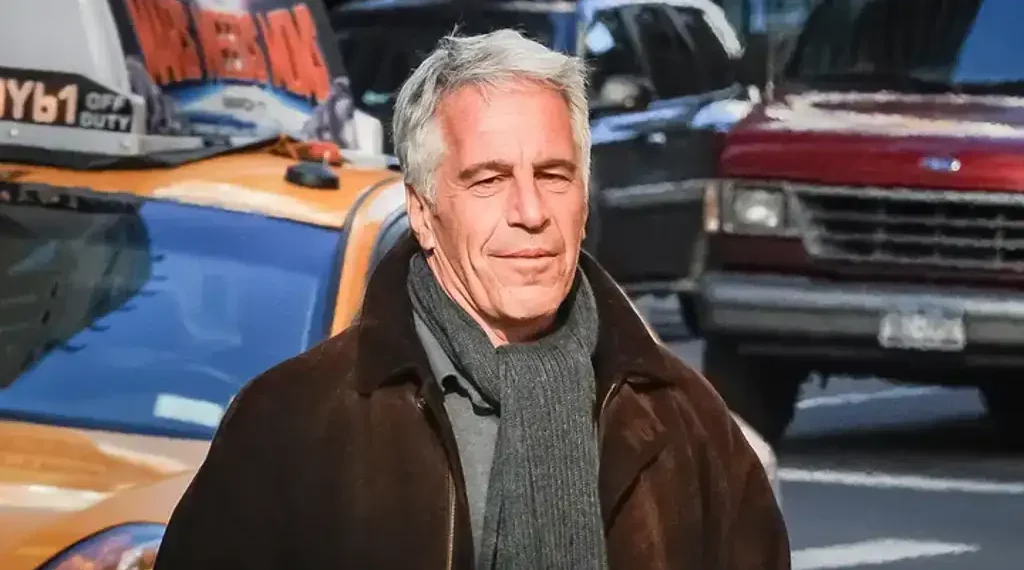Published: October 18, 2025, 22:40 EDT
The U.S. House Oversight Committee has released flight manifest records from the late financier Jeffrey Epstein’s private jet, alongside a transcript of a closed-door interview with former U.S. attorney Alex Acosta. The documents shed renewed light on the controversial 2008 plea deal that allowed Epstein to avoid federal prosecution despite widespread allegations of sexual abuse and trafficking.
Epstein Documents Made Public by Congressional Committee
The release, published Friday afternoon, includes passenger lists from Epstein’s private jet—records that have drawn global attention for years due to the high-profile names involved. Among those listed are Prince Andrew, Microsoft co-founder Bill Gates, the late news anchor Walter Cronkite, and entrepreneur Richard Branson. None of these individuals have been accused of any wrongdoing.
Former U.S. President Bill Clinton also appeared in several entries, including a 2002 flight where he traveled with Secret Service protection, according to the committee’s documentation. Like others mentioned, Clinton has not been accused of any criminal activity in relation to Epstein.
The House Oversight Committee, chaired by members investigating federal accountability in Epstein’s case, also published a 180-page transcript of its September interview with Alex Acosta, who served as U.S. attorney for the Southern District of Florida when the original case was prosecuted.
Acosta Defends 2008 Plea Deal as ‘Strategic Judgment’
In the transcript, Acosta defended the controversial decision to grant Epstein a plea agreement that reduced his exposure to federal charges. Under the 2008 deal, Epstein pleaded guilty to state-level charges, served 13 months in jail, registered as a sex offender, and compensated several victims.
Acosta told lawmakers the plea agreement reflected the limitations of the evidence available at the time. “Many victims refused to testify,” he said, explaining that inconsistencies in testimony might have weakened the case in court. “Our judgment was that it was better to have a billionaire serve time in jail and register as a sex offender than risk a total acquittal.”
The former prosecutor said his team weighed the public interest against the likelihood of a failed trial. “Every attorney that looked at the case understood there were evidentiary issues. Defense cross-examination would have been withering,” Acosta said in his testimony.
Concerns Over State-Level Handling of the Case
Acosta further stated that local Florida prosecutors had initially offered Epstein a lenient outcome. “The state attorney was letting him get away with this,” he said. “They were asking pre-trial diversion — unacceptable.” He added that his office’s intervention ensured at least some accountability. “A billionaire going to jail sends a strong signal that this is not right, that this cannot happen.”
During questioning, Acosta acknowledged that Epstein’s legal team “got awfully close to the line of unethical,” but said he “resisted” their pressure tactics.
Renewed Scrutiny Years After Epstein’s Death
The documents mark one of the most detailed public disclosures since Epstein’s death in federal custody in 2019, which was ruled a suicide. His death reignited questions about the initial plea deal and about the potential protection of influential associates.
When Acosta later served as Secretary of Labor under the Trump administration, his handling of the Epstein case resurfaced and led to his resignation in July 2019. At the time, Acosta again defended his decision, claiming federal prosecutors had faced severe constraints. “The Palm Beach state attorney’s office was ready to let Epstein walk free,” he said. “We found that completely unacceptable.”
A Case That Continues to Resonate
While the latest releases do not introduce new criminal allegations, they provide insight into the internal reasoning behind the 2008 plea arrangement and the scope of Epstein’s social network. Lawmakers say the disclosures aim to promote transparency and restore public trust in federal prosecutorial processes.
Epstein’s connections to political leaders, celebrities, and business figures continue to fuel public interest. The inclusion of prominent names in the manifests has drawn renewed debate over how powerful individuals interact with systems of accountability.
The Broader Implications for Justice Reform
The renewed focus on the Epstein files has also reignited discussion about how victims of sexual exploitation are treated in the justice system. Acosta, during the committee interview, admitted that “today’s world treats victims very, very differently,” reflecting changes in prosecutorial approaches to cases involving abuse survivors.
Legal analysts suggest that the House Oversight Committee’s actions may influence future policy discussions on plea agreements and federal oversight of high-profile cases. “This is as much about transparency as it is about accountability,” one legal expert told Reuters following the release.
The committee has not announced any additional hearings, but lawmakers indicated further document reviews may follow as they evaluate remaining materials from Epstein’s criminal proceedings and associated investigations.
This article was rewritten by JournosNews.com based on verified reporting from trusted sources. The content has been independently reviewed, fact-checked, and edited for accuracy, neutrality, tone, and global readability in accordance with Google News and AdSense standards.
All opinions, quotes, or statements from contributors, experts, or sourced organizations do not necessarily reflect the views of JournosNews.com. JournosNews.com maintains full editorial independence from any external funders, sponsors, or organizations.
Stay informed with JournosNews.com — your trusted source for verified global reporting and in-depth analysis. Follow us on Google News, BlueSky, and X for real-time updates.














